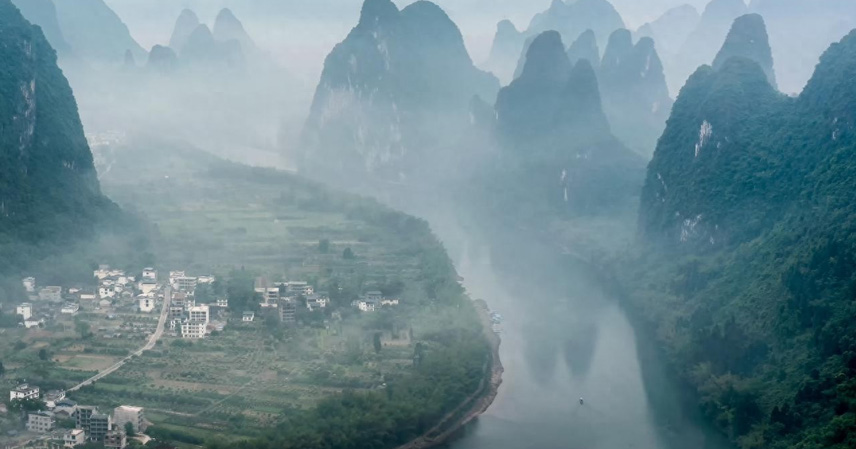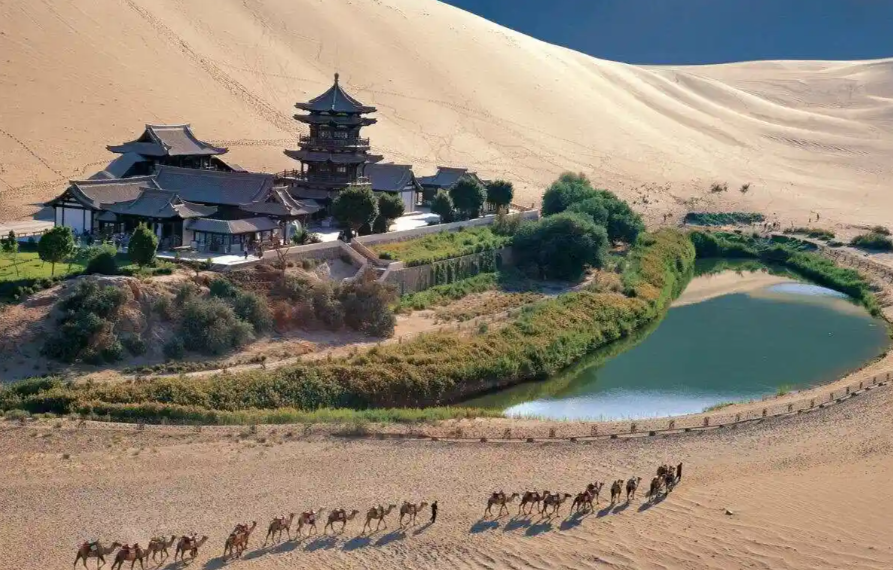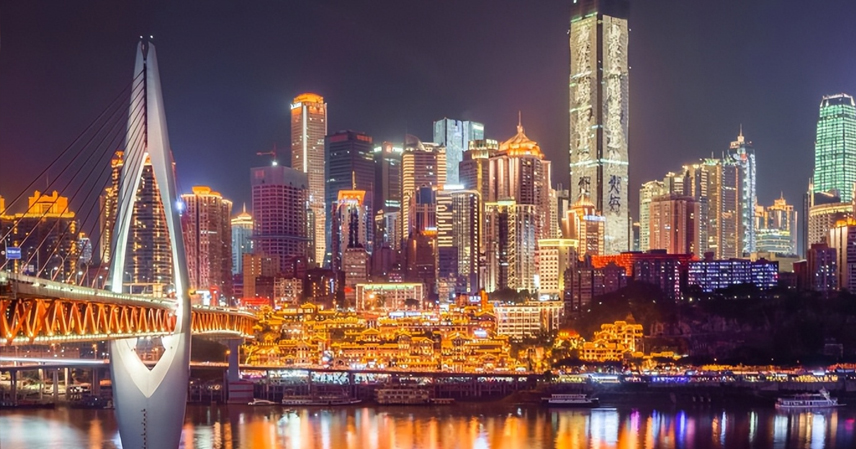I might’ve just betrayed my phone’s photo album. The night I returned from Guangxi, I deleted my best shots—the ones with pristine river views, cropped-out crowds, and light perfectly caught in cloud gaps. After deleting them, I wondered: if I only keep this “perfect moment,” did I even take the trip? Friends’ Circle isn’t evil, but it flattens the journey. Let me start with the rough edges.
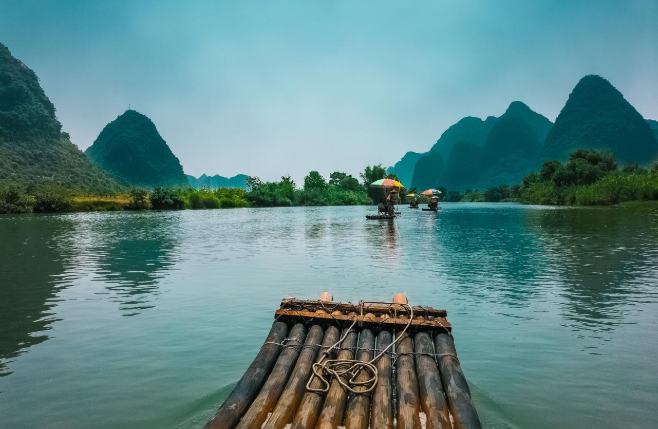
From Hunan’s Heat to Guangxi’s Hues
I set out from Hunan. The high-speed train yanked me from Changsha’s spicy chaos—where noodle shop plastic stools buzz with energy—and dropped me into Guangxi’s humid canvas. Changsha’s nights are loud; Guangxi slows the rhythm past Quanzhou, with steady green fields outside the window. In Guilin, rain greeted me, dimming the mountains’ glow and exposing their limestone bones. The Li River wasn’t blue but a shifting gray-green, like freshly ground ink. On a bamboo raft, I fell quiet. My friend wanted to crank up the saturation on his photos. I stopped him: “No filters. Let your eyes taste the raw view first.”
Food First, Then Sights
At dawn, I hit a Guilin street stall for rice noodles. The broth was clear, the brine rich. Hunan’s noodles are a hammer—spicy chili smashing sleep away. Guangxi’s are a gentle hand, cradling your stomach, then your heart. The stall owner offered pickled bamboo shoots. One bite: sharp but not harsh, pressing flavor inward. I asked how long his shop had been open. “Fifteen years,” he said. “We don’t wash the pot’s base.” That line drew a clear divide between “internet-famous” and “authentic flavor”. Viral spots teach you to snap photos; old broth teaches you to wait.
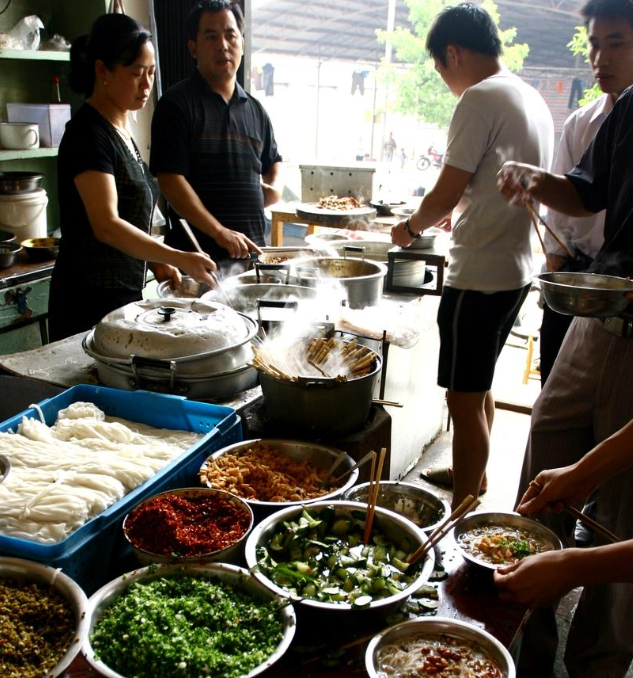
Rain and Reflection
The rain thickened. I cycled along the Yulong River, my poncho turning everyone into watery shadows. I paused in a bridge tunnel, its stone walls polished by hands, moss growing silently. Below, bamboo rafts huddled; a boatman sorted ropes, his shoulders damp. I stood there for five minutes, not thinking, not photographing. That “useless” time felt precious. Changsha gives me speed and noise; Guangxi offers space and slowness. They’re not rivals—they’re different ways to breathe. Hunan’s a deep inhale, a loud exhale; Guangxi’s a slow, steady swap.
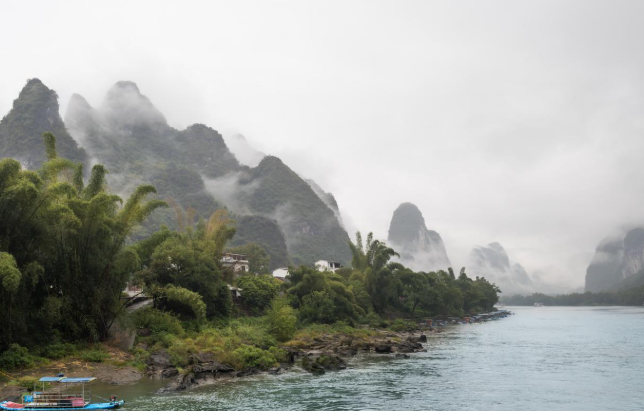
People and Pace
At dusk, I hit a market for fruit. The vendor, carving a mango into a flower, asked where I was from. “Hunan,” I said. He grinned, handing me a lime dipped in spicy salt—sour, then salty, then sweet, like emotions parading across my tongue. He didn’t push a sale, just gestured: take it or linger. I recalled a common online jab: “Guangxi folks are too slow.” That slowness isn’t a flaw—it’s patience woven into life, waiting for rain, broth, or a conversation to finish. We fear waiting, so we praise “fast.”
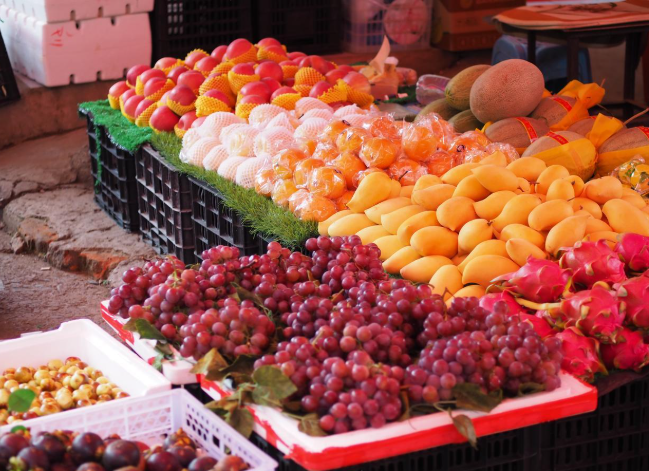
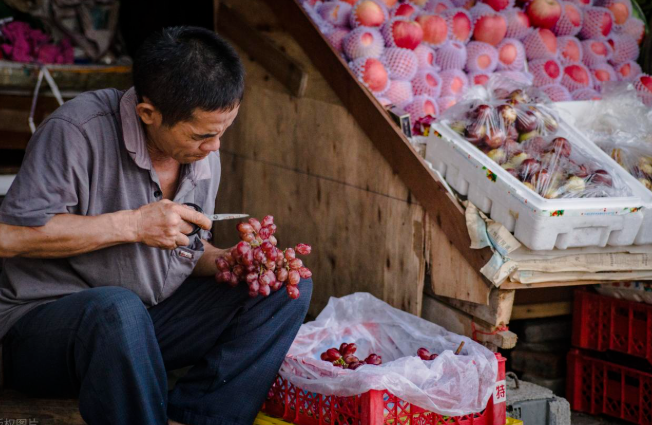
Debunking Online Labels
The internet loves tags. One says, “Guilin’s about crowds, not scenery.” True on main streets, where people twist you like dough in a braid. But two alleys over, lights dim, footsteps fade, and the scent of fresh lime paint lingers. That’s when the scenery emerges. Another tag: “Guangxi’s just mountains and noodles.” Not quite. Tiandong’s oil tea sparks like fireworks. Liuzhou’s snail noodles are just one loud note among many. Nanning’s old-friend noodles feel like a late-night truce. Laibin’s pickled snacks are crisp and refreshing. And yes, “Guilin’s beautiful but rainy” hits home. Rain’s the star—treat it like a filter, and the mountains turn 3D. We call inconveniences flaws because we don’t let them speak.
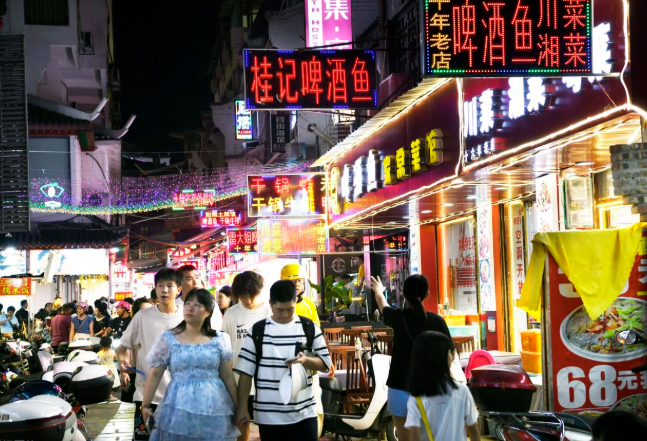
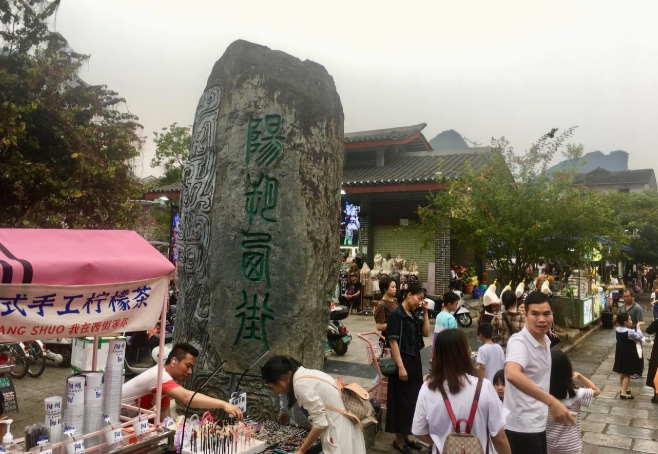
The Unpolished Truth
I’m not here to fix the internet—it doesn’t owe me “real.” But social media works a little magic, cropping out the hour-long waits, soaked shoes, or GPS fails, leaving a polished story. The trip’s texture lies in the mess. On a Yangshuo bus, a kid giggled at my drenched pant legs. I laughed too. After the rain, steam rose from the road. A scooter splashed a puddle onto me. I cursed, then looked up—the clouds moved beautifully, and I couldn’t stay mad. Hunan taught me to push forward; Guangxi taught me to let go. Pushing carves a path; letting lets the path grow.
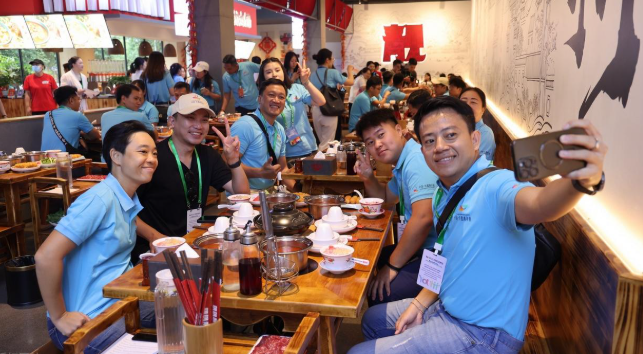

Practical Tips for Guangxi
- Don’t chase clear skies on the Li River—mist suits its mood better.
- Skip racing when cycling. Pause at a bridge to watch boats pass; it captures the river’s spirit more than mileage.
- Don’t ask, “What’s the best noodle spot?” Ask, “Where do you eat?” That opens a door.
- Don’t hide from rain too long. Wear a poncho and keep going—rain’s Guangxi’s makeup.
- Avoid crowds by staying in alleys, traveling early or late, and giving an afternoon to aimless wandering. Let streets lead, not checklists.
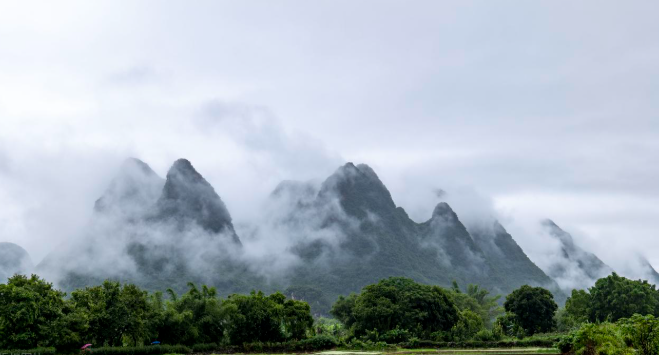
A Moment of Doubt
At dusk by the river, the light tightened, and the sky cracked open in pink-orange hues. Everyone raised their phones. So did I, recording 10 seconds of perfection. Then I stopped, looked at the screen, and felt a pang. Was I working for Friends’ Circle instead of the sky? I deleted the video and kept walking. Nearby, two people whispered. One said, “Yangshuo’s just okay this time.” The other replied, “I got the shots, but my heart didn’t follow.” These lines, straight out of comment sections, hit differently in person—like a mirror. We’ve upgraded “I was here” to “I posted it.” But do we let ourselves truly arrive?
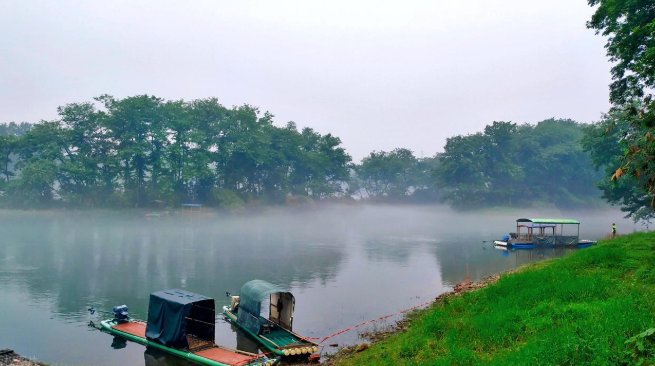
Hunan vs. Guangxi: A Flavor Tug-of-War
Hunan’s spice is a battle cry, staking its claim. Guangxi’s sourness is a quiet thread, stitching flavors together. Hunan serves emotions raw—bold, like stir-fried pork. Guangxi steeps them in broth, patient, like old-friend soup simmering. Hunan makes me bolder; Guangxi makes me steadier. They’re different strides: Hunan’s long leaps turn distance into results; Guangxi’s small steps turn time into life.
Travelers chasing dreams need Hunan’s fire. Those pausing need Guangxi’s calm. Most of us sway between ambition and patience, balancing both on the same table.
References:
- Personal travel observations and local culinary experiences
- Social media discussions on Guangxi tourism and culture

